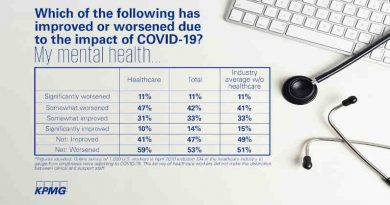Most Americans Favor Free Speech: Survey

The Newseum Institute, in partnership with USA TODAY, released Friday the results of its latest yearly State of the First Amendment survey.
The results of this year’s survey show most Americans favor free speech, even over speech that offends, and support religious liberty, even in the face of terrorism.
However, 39 percent of Americans could not name a single First Amendment freedom: religion, speech, press, assembly, or petition.
“The American people have a strong commitment to our fundamental freedoms,” said Jeffrey Herbst, president and CEO of the Newseum. “However, more needs to be done to explain how our foundational rights can be fully realized in today’s complex society. This study’s findings underscore the importance of the Newseum’s role in explaining, supporting and defending our First Amendment rights.”
The annual survey, which began in 1997 and this year was conducted in late May, showed that 86 percent of those responding in the national survey favored “protecting speech,” while just 10 percent favored limits aimed at “protecting people from hearing things that offend them.”
There also was strong support for free expression on college campuses: 57 percent said college students should be able to speak freely. The results dropped to 35 percent for students in high school.
Also, a follow-up survey done after the June 12 mass shooting in Orlando showed support for First Amendment protection for all religious faiths, regardless of how extreme or fringe the survey respondents might consider the beliefs of those faiths, actually increased, despite anti-Muslim rhetoric and reports of an ISIS connection that followed the worst mass shooting in U.S. history.
Following the shooting, there was a seven-point drop — from 29 percent to 22 percent — in the number who said the First Amendment was not intended to protect such faiths, compared to results from the annual report survey that was conducted in the days before the Orlando tragedy.
The number who said the First Amendment is intended to protect all faiths rose from 59 percent to 64 percent.
“There was a burst of anti-Islam rhetoric in the immediate aftermath of the shootings that was followed by public criticism of calls for increased surveillance of Muslims and religious profiling,” said Gene Policinski, chief operating officer of the Newseum Institute. “After that public debate, there was a noticeable shift in opinion in favor of the religious liberty protection for all faiths in this nation.”
The survey also found in the area of freedom of the press that 74 percent of people believe the news media are biased when it comes to reporting the news, but 71 percent agree media still play an important role in acting as a “watchdog on government.”
When asked about the 2016 presidential campaign coverage, only 10 percent of respondents said the coverage has been “very accurate.” Twenty-three percent believe it’s been “very inaccurate.”
The survey continued to find a general lack of knowledge in about one-third of Americans about the First Amendment. This year, 39 percent of those responding could not name, unaided, a single freedom among the five core freedoms in the amendment.
Each year, the State of the First Amendment survey is conducted by the Newseum Institute’s First Amendment Center to measure public knowledge and opinion about the First Amendment and related issues.
The 2016 sampling of 1,006 adults was done through Stats Group, a survey research company that has worked on the survey since 1997, and was supported in part by a grant from the Gannett Foundation.
The Newseum Institute, headquartered at the Newseum in Washington, D.C., is dedicated to free expression and the five freedoms of the First Amendment: religion, speech, press, assembly, and petition.





